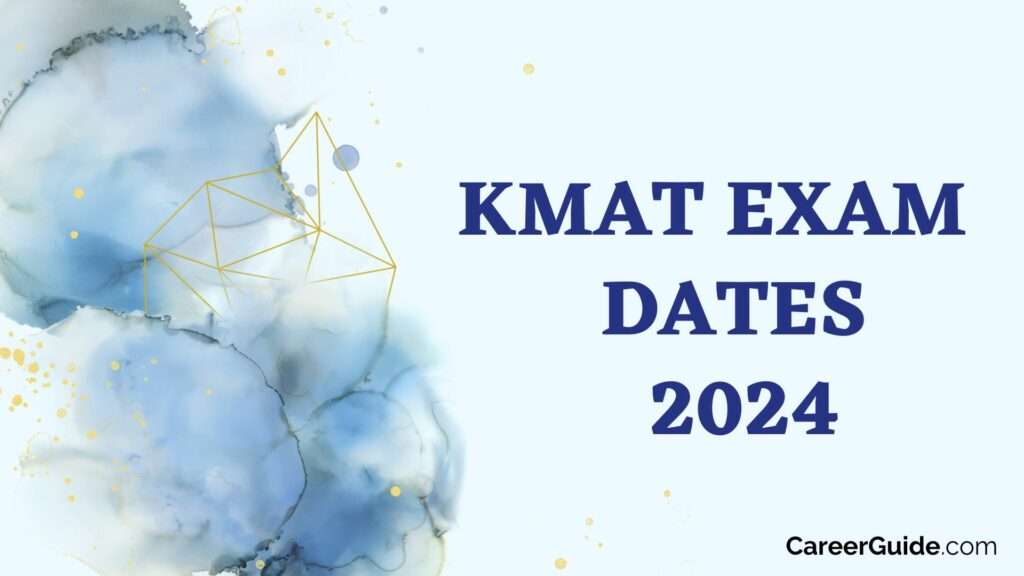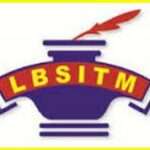KMAT Exam Date 2024: The Karnataka Management Aptitude Test (KMAT) is a state-level management entrance examination conducted by the Karnataka Private Post Graduate Colleges Association (KPPGCA). KMAT is a gateway for admission to MBA, PGDM, and MCA programs offered by various B-schools and universities in the state of Karnataka.
To succeed in KMAT, it’s crucial to have a comprehensive understanding of the exam syllabus. In this extensive guide, we will explore the KMAT syllabus in detail, covering various aspects of each section, key topics, and preparation strategies.

KMAT Kerala 2024: Overview
KMAT Kerala (Session 1) was conducted on February 19, . The result for the first session exam was announced on March 13, . The KMAT Kerala admit card was released online on February 3. The KMAT Kerala application forms were released on January 9, for the first session. The second session KMAT Kerala exam was conducted on July 2. The final KMAT Kerala result was released on July 14. The KMAT Kerala application form was released on June 5, for the second session exam:
KMAT 2024 Exam Dates & Schedule
Take a look at the table below for the complete schedule of KMAT KERALA 2024 exam
| Dates | Past Exam Dates |
|---|---|
| 14 Jul ’23 | KMAT Kerala 2023 result declaration (final) Session 2 |
| 12 Jul ’23 | KMAT Kerala 2023 result declaration (provisional) Session 2 |
| 2 Jul ’23 | KMAT Kerala Answer Key Release (Provisional Session 2 ) |
| 2 Jul ’23 | KMAT Kerala 2023 (Session 2) |
2 Jul ’23 – 7 Jul ’23 | KMAT Kerala 2023 Objection Filing Window (Session 2) |
20 Jun ’23 – 2 Jul ’23 | KMAT Kerala 2023 Admit Card Release (Session 2) |
| Jun ’23 | KMAT Kerala 2023 (Session 2) Form Correction |
| 12 Jun ’23 | KMAT Kerala 2023: Last date of Application Fee (Session 2) |
5 Jun ’23 – 12 Jun ’23 | KMAT Kerala 2023 Online Registrations (Session 2) |
| 13 Mar ’23 | KMAT Kerala 2023 result declaration (final) Session 1 |
| 8 Mar ’23 | KMAT Kerala 2023 result declaration Session 1(provisional) |
| 19 Feb ’23 | KMAT Kerala Answer Key Release (Provisional Session 1) |
| 19 Feb ’23 | KMAT Kerala 2023 |
19 Feb ’23 – 24 Feb ’23 | KMAT Kerala 2023 Objection Filing Window (Session 1) |
| 3 Feb ’23 | KMAT Kerala 2023 Admit Card Release (Session 1) |
| 18 Jan ’23 | KMAT Kerala 2023: Last date of Application Fee |
9 Jan ’23 – 20 Jan ’23 | KMAT Kerala 2023 Online Registrations |
KMAT Domicile Requirements
- KMAT is not limited to candidates from Karnataka. It is open to candidates from all states and Union Territories of India.
- There are no specific domicile requirements to take the KMAT exam.
- However, candidates should be aware that some institutions may have seats reserved for Karnataka domicile candidates or specific state quotas.
- These policies can vary from institution to institution, and candidates should review the admission guidelines of their chosen institutions for any specific requirements related to domicile.
KMAT Kerala Cut off 2024
Check the cutoff for the First session exam exam in the table below for all categories.
| Category | Min cut off percentage | Cut off Marks |
|---|---|---|
| General Category | 10% of 720 marks | 72 |
| SEBC Category | 10% of 720 marks | 72 |
| SC/ST | 7.5% of 720 marks | 54 |
KMAT Score Validity
The KMAT score is valid for one year from the date of the exam. This means that you can use your KMAT score to apply for MBA and PGDM programs in the year in which you took the exam and the following year.
For example, if you took the KMAT exam in May 2023, your score will be valid until May 2024. You can use your score to apply for MBA and PGDM programs in the academic year 2023-24 and the academic year 2024-25.
It is important to note that some B-schools may have their own score validity policy. For example, some B-schools may accept KMAT scores that are only six months old. It is always advisable to check the admission criteria of the B-schools you are interested in before applying.
Here are some tips for using your KMAT score effectively:
- Start early. The KMAT admission process can be time-consuming, so it is important to start early. Research the B-schools you are interested in and submit your applications as soon as possible.
- Be prepared for interviews. Many B-schools will conduct interviews for shortlisted candidates. Be prepared to answer questions about your academic background, your work experience, and your career goals.
- Follow up with the B-schools you have applied to. After you have submitted your application, follow up with the B-schools to check the status of your application and to answer any questions they may have.
I hope this information is helpful. Please let me know if you have any other questions.
Preparation Tips for KMAT
Now that you’re familiar with the KMAT syllabus, here are some tips to help you prepare effectively:
Understand the Syllabus: Start by thoroughly understanding the syllabus and the topics covered in each section.
Create a Study Plan: Develop a study plan that covers all sections of the syllabus. Allocate more time to areas where you need improvement.
Practice Regularly: Regular practice is the key to success. Solve a variety of questions from different topics to enhance your problem-solving abilities.
Mock Tests: Take full-length mock tests regularly to simulate the actual exam environment. Analyze your performance in these tests to identify areas that need improvement.
Focus on Weak Areas: Identify your weak areas and work on improving them. Whether it’s mathematics, reasoning, or language skills, targeted practice can make a significant difference.
Speed and Accuracy: KMAT demands both speed and accuracy. Strive to strike a balance between solving questions quickly and ensuring they are correct.
Reading Habit: Develop a habit of reading newspapers, magazines, and business articles to improve your reading comprehension skills.
Stay Updated: Keep up with current affairs and general knowledge as they are often tested in reading comprehension passages.
Stay Calm: On the day of the exam, stay calm and composed. Avoid last-minute cramming and focus on what you’ve learned during your preparation.
No Negative Marking Advantage: Remember that as of my last knowledge update in September 2021, KMAT did not have negative marking. So, attempt all questions, even if you are unsure about some.
KMAT Reservation Policy
The following reservation policy is applicable to the KMAT exam:
- Scheduled Castes (SC): 15%
- Scheduled Tribes (ST): 7.5%
- Other Backward Classes (OBC): 27%
To avail the reservation benefits, candidates must submit the required caste certificate or other relevant documents at the time of admission.
Note: The reservation policy may vary slightly from B-school to B-school. It is always advisable to check the reservation policy of the B-schools you are interested in before applying for the KMAT exam.
Here are some additional points to keep in mind about the KMAT reservation policy:
- The reservation policy is applicable to all seats in the KMAT participating B-schools.
- The reservation policy is applicable to both government and private B-schools.
- The reservation policy is applicable to all categories of candidates, including general category candidates, reserved category candidates, and foreign nationals.
If you have any questions about the KMAT reservation policy, you can contact the KSPITTC office.
Other Requirements
- In addition to the general eligibility criteria outlined above, candidates should be aware that individual participating institutions may have specific admission requirements.
- These additional requirements could include criteria such as work experience, entrance test scores other than KMAT, group discussion, and personal interview performance.
- Candidates must thoroughly review the admission guidelines of the institutions they are interested in to ensure they meet all requirements.










